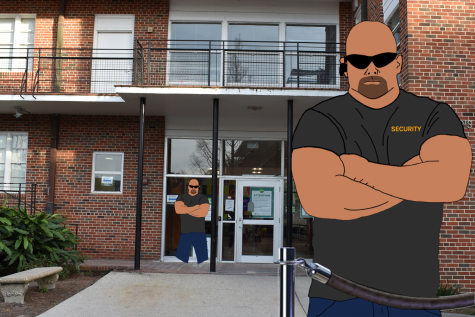OPINION | New Safer-At-Home guidelines are counterproductive, performative
February 3, 2021

Tulane University has made admirable efforts to resume the school year as normal, despite the ever-pertinent COVID-19 pandemic. Tulane’s new COVID-19 guidelines, however, demand responsibility and compliance from over 8,000 young adults tempted by freedom, friendship, warm weather and a lively city.
Optimistic is the word that most aptly describes some of Tulane’s expectations of its students. That is not to say that Tulane’s administration should not expect responsibility from its students, all of whom were admitted to the school partially on account of their ability to make informed and responsible decisions. Rather, Tulane’s new COVID-19 guidelines are woefully optimistic because they are unenforceable, performative measures. The guidelines subvert their own intentions because they lack consistency with New Orleans’ own protocols and disproportionately punish certain groups, consequently creating disillusionment and distrust amongst students and administrators.
Despite efforts on campus to keep students socially distanced and ensure proper sanitation, ultimately, the university is unable to account for student behavior off campus. A large population of the student body lives off campus. Thus, students are certainly willing and able to visit friends or significant others that are not part of their pod in their homes that are not directly monitored by the administration. Furthermore, in the city of New Orleans, bars and restaurants are generally open with reduced capacity. This begs the question: in which authority do we place our trust? The city of New Orleans or the university administration? The irreconcilability of the COVID-19 regulations of New Orleans versus Tulane necessarily fosters distrust between students and administration.
In an effort to control the spread of COVID-19 among students, faculty, and the greater New Orleans area, Tulane began targeting Greek organizations. While it is nearly impossible to ensure that thousands of individuals are making responsible choices in the face of this pandemic, defining smaller and seemingly more manageable groups of people as being more responsible than the rest, inadvertently alleviates greater numbers of students of their responsibility. A seemingly informed decision to control social groups, this measure also breeds resentment amongst students and between students and administrators. Unfortunately, this divide within the Tulane community positions the individual as just that — an individual — and suddenly our choices seem inconsequential, our responsibilities obsolete, and the global pandemic unresolvable.
This same logic may also apply to other Registered Student Organizations, which are all now also facing increasingly restrictive rules from administration. A Jan. 26 email from Greg Feiling, associate director at the Lavin-Bernick Center, put a temporary ban on any in-person events, meetings and tablings in accordance with President Mike Fitts’ original email. The explicit restriction of these activities does seem like a well-deserved move, but how can these be reconciled with the university’s continued endorsement of in-person classes and the recreation center’s continued opening?
The modified restrictions stipulate that in-person classes are to proceed without further limitations. In fact, exceptions have even been made so that in-person class classes can take place at larger capacities. Student organizations, however, are prohibited from meeting in any physical capacity regardless of safety precautions being taken. Student organizations are being hyper-restricted as a preemptive measure because of their reputation and perceived irresponsibility. If, indeed, precautionary measure need be taken, should they not apply to all students, activities and facilities?
The COVID-19 guidelines seem highly performative, the means by which Tulane’s image remains untainted to parents and the New Orleans community. If Tulane puts a stop to the reckless behavior of Greek organizations, they appear cognizant and sympathetic to the spread of COVID-19. Yet by skirting citywide rules, they create a contradiction that ineffectively addresses the spread of COVID-19. Should the university not be more concerned with fostering a strong communal bond which incites collective prevention? Foregoing performative measures could unify the student body and administrators in a way that is ultimately more effective at stopping the spread of COVID-19 and Tulane could embody in reality the righteousness that they advertise.






















Annonymous • Feb 4, 2021 at 2:33 pm
While I agree that the regulations regarding student orgs are fairly performative and shouldn’t be so restrictive if the school itself is not being restricted beyond what they are doing currently, I think that your statements regarding the restriction of Greek Organizations and the resentment felt towards those students is based. When you take into account how people are actually being affected by COVID and the implications that come with not following simple guidelines, its quite silly to sit here and write that you think that the rules are pitting students against each other when it’s actually the students who are not following covid safety rules that are causing such dissent. I know its hard for Grayson from Sig Chi to not go to TJ Quills every night or for Taylor from Pi Phi to not act high and mighty and post with their masks on during recruitment but then go out to bars and travel all over the country during winter break and on the weekends, but COVID actually hurts and kills people daily. That is why there is resentment amongst students, not school imposed rules, but the blatant disregard for other peoples’ lives that is projected all over Instagram and private snap stories as a badge of honor.